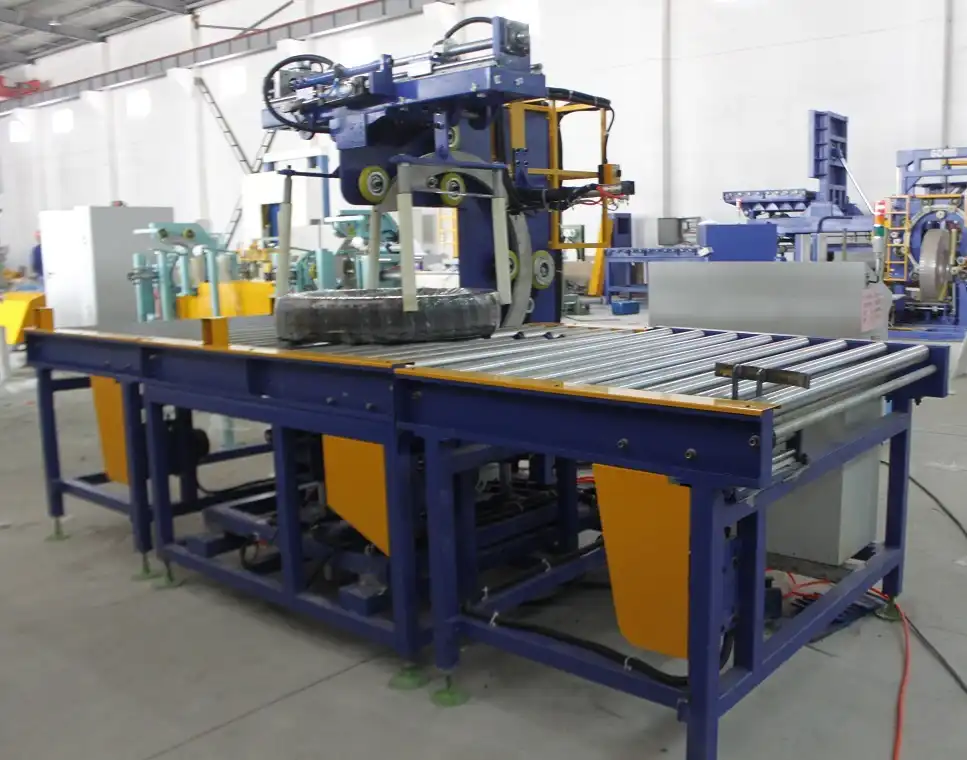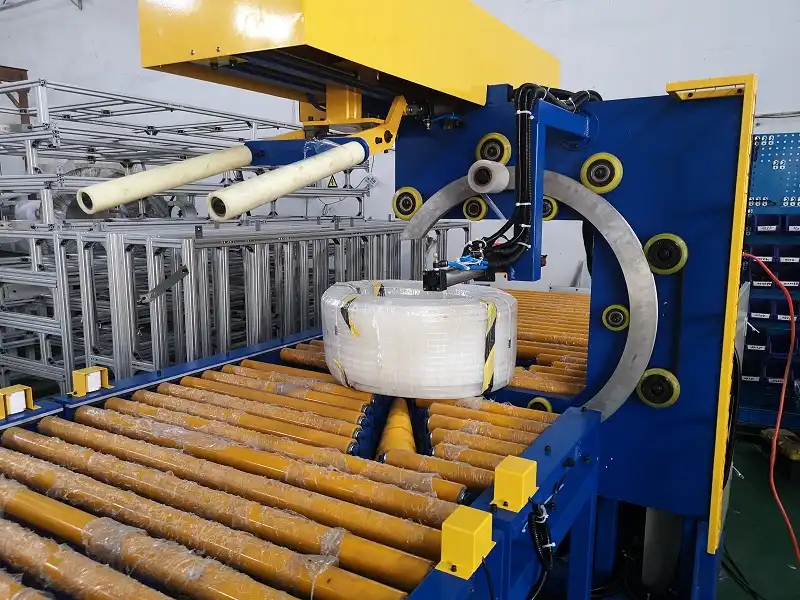In an ever-evolving world of industrial machinery, navigating the landscape of tire wrapping machines can seem daunting. With a myriad of models boasting advanced technology and unique features, selecting the right one requires more than just a cursory glance. The competition is fierce, and the stakes are high; after all, this decision could significantly impact your operational efficiency.
Choosing a tire wrapping machine isn’t merely about fulfilling immediate needs but foreseeing future demands. It’s about aligning with technological advancements that promise to streamline processes and maximize productivity. Understanding the intricate details of each model becomes paramount as each offers distinct benefits tailored for specific operational contexts.
Claim: An informed choice in selecting a tire wrapping machine model not only ensures superior performance but also aligns with long-term strategic goals.
What Are the Key Features to Look For?
Understanding Core Functions

When evaluating tire wrapping machines, it’s crucial to identify core functionalities that cater to your specific requirements. Does the machine support varying tire sizes? Is it equipped to handle different packaging materials? These questions guide you to assess whether a machine’s capabilities align with your operational needs.
Statistical Overview: Comparing Specifications
The table below highlights key specifications of different models:
| Model | Max Tire Size | Wrap Speed | Energy Consumption |
|---|---|---|---|
| Model A | 24 inches | 20 tires/hour | 1.5 kWh |
| Model B | 30 inches | 25 tires/hour | 1.7 kWh |
| Model C | 28 inches | 22 tires/hour | 1.6 kWh |
Deciphering the Data: What Do These Numbers Mean?
The differences in energy consumption and speed directly correlate with operational costs and efficiency. For instance, a faster wrap speed may enhance productivity, but higher energy consumption could offset cost savings. Balancing these factors is essential for optimal machine selection.
Diving Deeper: Evaluating Cost vs. Benefits
Assessing a machine involves more than just initial price checks; it’s about weighing ongoing operational costs against potential productivity gains. Consider maintenance ease, durability, and warranty periods. The table below offers a comparison of estimated annual maintenance costs:
| Model | Annual Maintenance Cost | Warranty Period |
|---|---|---|
| Model A | $500 | 2 years |
| Model B | $600 | 3 years |
| Model C | $550 | 2.5 years |
Two-Fact Statement
True Fact: Model B provides the fastest wrap speed, enhancing throughput.
False Fact: Model A has the lowest energy consumption amongst all models.
How Do Technological Features Impact Performance?
Exploring Technology Integration
Modern tire wrapping machines come equipped with advanced technology like automation and IoT capabilities, which improve precision and ease of operation. Understanding how these features integrate into existing systems can enhance workflow efficiency dramatically.

Visualizing Advanced Features
Here’s a look at some advanced features found in top-tier models:
| Feature | Description |
|---|---|
| Automated Adjustments | Automatically adjusts settings for different tire sizes |
| Remote Monitoring | Allows remote access to machine data |
| Energy Efficiency Mode | Reduces power usage during idle times |
Delving Into Technical Innovations
These innovations not only save time but also reduce human error, thus increasing overall efficiency. The introduction of automation has been pivotal, providing significant productivity boosts by minimizing manual adjustments.
Conclusion: Synthesizing Insights
A comprehensive analysis reveals that selecting the right tire wrapping machine model hinges on balancing features and costs with operational needs. Considerations such as speed, efficiency, and technological advances play critical roles in making an informed decision. The table below summarizes key takeaways:
| Aspect | Recommendation |
|---|---|
| Speed | Opt for higher speeds if operational demand supports it |
| Efficiency | Balance energy consumption with speed |
| Technology | Embrace automation for enhanced efficiency |
Claim: Embracing the right technological features in tire wrapping machines aligns operations with futuristic efficiency standards, ensuring competitive superiority.

